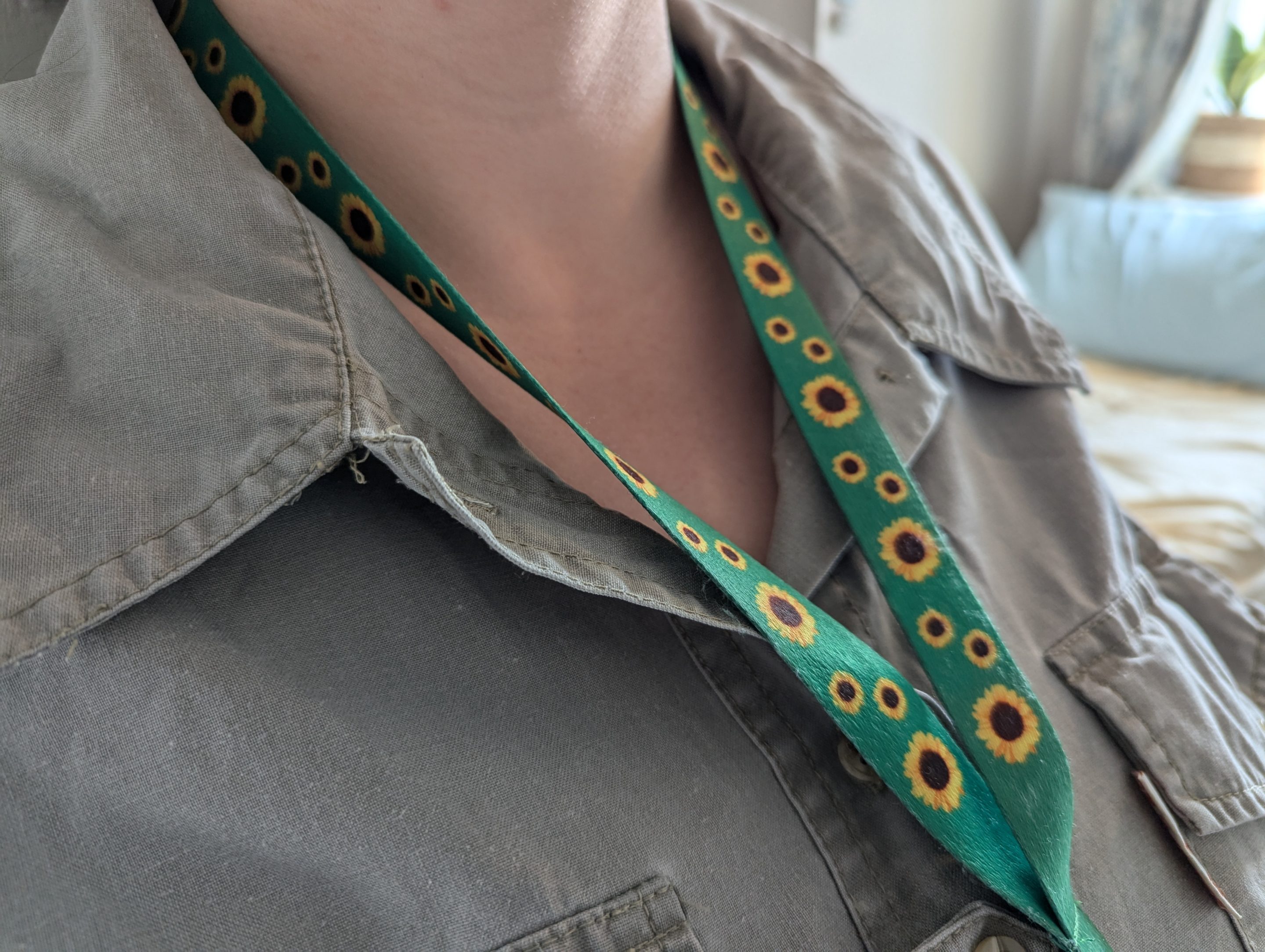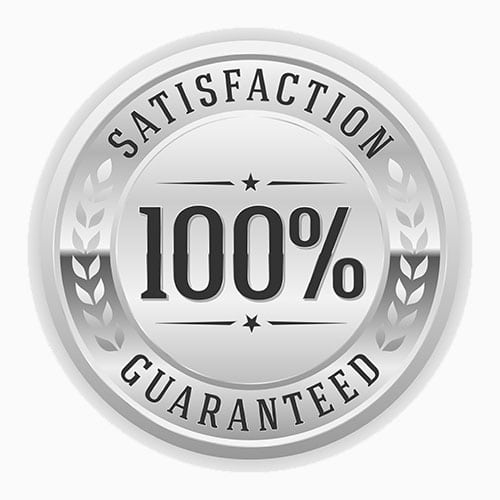
We’re going to do something a little unusual in this article. We’re going to talk to you about a lanyard, but one that we don’t sell, and we don’t ever plan to.
However, it’s rapidly becoming one of the most recognisable lanyards in the UK (and further afield too).
Yes, we specialise in providing high-quality lanyards, ID card holders, and other accessories for both personal and professional use. However, there’s one particular type of lanyard we don’t sell—the sunflower lanyard.
It’s not because we don’t believe in it. In fact, it’s quite the opposite.
The sunflower lanyard is a unique and important symbol that has a special purpose, and we believe it should only be provided through the right channels.
What is the Sunflower Lanyard?
The sunflower lanyard was introduced in 2016 in the UK and has quickly become a recognised symbol that indicates the wearer has a hidden disability.
These disabilities might not be immediately visible, but they can still affect a person’s daily life. Conditions like autism, anxiety, hearing impairments, learning difficulties, chronic illnesses, or mental health conditions are just some examples.
Wearing a sunflower lanyard signals to others that the individual may need a little extra time, patience, or assistance.
It’s a simple but powerful way of making people feel more comfortable in public spaces, without having to explain their condition every time they need help.
Who Provides the Sunflower Lanyard?
While we offer a wide range of lanyards, we’ve made the decision not to sell the sunflower lanyard.
This lanyard is special because it’s intended to be distributed by organisations and charities that understand its purpose and are committed to supporting those with hidden disabilities. In the UK, the lanyard is available for free (or at a low cost) through recognised sources like supermarkets, airports, and charities.
By making the sunflower lanyard available through these trusted channels, it ensures that it remains a genuine symbol of support rather than just another product to profit from. We believe that this lanyard should be provided to people in the most appropriate way, with the understanding of the extra support they might need.
We understand that many of our customers may be looking for lanyards for a variety of reasons – whether for events, workplaces, or personal use – but we feel that selling the sunflower lanyard would undermine its meaning and the efforts of the organisations that provide it.
How the Sunflower Lanyard Helps
One of the key benefits of the sunflower lanyard is its subtlety. People with hidden disabilities may not always want to explain their condition publicly, and this lanyard allows them to discreetly signal that they might need additional support. Here are a few examples of how it works in practice:
In airports
Travelling can be stressful for anyone, but it can be particularly overwhelming for someone with a hidden disability.
Wearing a sunflower lanyard lets airport staff know they may need extra assistance or more time when navigating through check-in and security.
Because it’s become such a recognisable symbol (not just in the UK where it originated, but around the world), airport staff can easily identify the people who may need extra help, and can offer it without making a big deal out of anything.
In supermarkets
Many supermarkets in the UK recognise the sunflower lanyard and have trained their staff to offer help when needed, whether it’s packing shopping bags or providing a quieter checkout lane.
Indeed the fact that it’s still available from some supermarkets shows that they take it seriously and will do their best to help anyone wearing one
On public transport
Wearing the lanyard might prompt train or bus staff to be more aware, offering seating assistance or simply giving extra consideration during a journey.
The sunflower lanyard has grown in recognition not just across the UK but in other countries too. Yet, it’s important to remember that it isn’t a legal document or a right to any specific services – it’s a request for understanding and support from the public and staff.
Lanyard misuse
Since we’re giving you a whistle-stop guide to the sunflower lanyard, it’s important to touch on the controversy around it as well.
It was designed to help people with a genuine disability, but during the global shutdown in 2020, some people misappropriated the lanyard as a way of getting out of wearing face masks in public.
Some people genuinely needed to avoid wearing face masks, but many people used the lanyard just because they disagreed with the policies at the time.
Unfortunately, it’s hard to challenge people on something like this, because you need to be considerate of the people who actually do have a genuine hidden disability.
Thankfully in the years since, the lanyard has returned to being more of a symbol of what it originally stood for.
Where to Get a Sunflower Lanyard
If you or someone you know could benefit from a sunflower lanyard, we recommend getting one through official channels.
Many large supermarkets like Tesco and Sainsbury’s offer the lanyard for free, and you can also find them at airports, train stations, and through organisations like the Hidden Disabilities Sunflower charity.
These organisations ensure that the lanyard is distributed appropriately to those who need it.
Don’t buy a sunflower lanyard from a company that seems to be selling it for profit. It’s not just about getting a fair deal for yourself, but also making sure that the practice is stamped out, and that eventually it’s only available through the proper channels that help those in need.
Our Commitment to Inclusivity
While we may not sell the sunflower lanyard, we are fully committed to supporting inclusivity and accessibility through our range of products.
We offer a variety of customisable lanyards, badge holders, and other accessories designed to help people express their identities and needs, both in the workplace and in everyday life.
If you’re looking for lanyards or accessories for a specific event or purpose, we’re here to help you find the perfect fit.
And if you’re after a sunflower lanyard, we encourage you to seek it through the right channels so that it can remain a genuine symbol of support for those with hidden disabilities.











